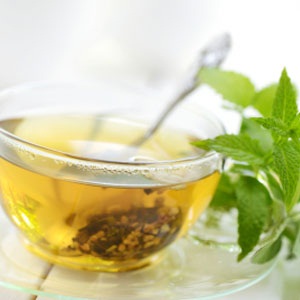
Tea comes in many different varieties and shopping for the healthiest brand is quite a bewildering experience, but rest assured that whatever tea you put into your trolley, regardless of what type it is, will have the following health benefits:
Antioxidants – Tea leaves contain even more natural antioxidants than most fruit, vegetables and red wine. Antioxidants neutralise free radicals – incomplete cells that attack healthy cells and cause oxidative damage that can lead to heart disease and cancer. In so doing, antioxidants have significant disease-fighting properties.
Tea is rich in a powerful type of antioxidant compound known as flavonoids.
Flavonoids are more effective antioxidants than vitamin C and E and beta-carotene. They have been found to improve the blood vessels' ability to relax and therefore stop the arterial blockage that leads to heart attacks and strokes. Flavonoids also stop "bad" cholesterol from oxidising and hardening the arteries.
Because flavonoids have a short life, you need to continuously ingest flavonoid-rich foods, such as fruit, vegetables and tea to experience their full health benefits.
As long as you don't overload your tea with sugar or high-fat milk, it's a low-kilojoule way to increase your antioxidant level with almost no downsides. Tea cannot replace, but can supplement the recommended flavonoid-rich five fruits and vegetables a day.
Both black and green teas contain cancer-fighting polyphenols. Also known as tea tannins or catechins, polyphenols seem to be the most potent therapeutic plant-derived chemicals because of their triple function – they are antiseptic, antioxidant and detoxifying. Polyphenols that have antioxidant properties seem to help inhibit the growth of cancerous tumours.
A boon to teeth, immune system
Both green tea and herbal teas are sources of vitamin C, which helps boost the immune system.
Ethylamine, found in black and green teas, also targets pathogens including parasites, viruses and perhaps, tumours.
An experiment by the National Academy of Sciences in the US found that the immune system blood cells from tea drinkers responded five times faster to germs than the blood cells of coffee drinkers.
Interesting research shows that tea contributes to better oral health due to the fact that it contains flavonoids that inhibit the plaque-forming ability of oral bacteria. What's more, tea is also a good source of fluoride, a mineral that helps protect teeth by strengthening tooth enamel and combating cavities.
L-theanine in tea stimulates alpha brainwaves, which contributes to a relaxed but alert state of mind.
Tea has antioxidant, antibacterial, antiseptic and detoxifying properties. No wonder new beverage guidelines highlight that leaf tea is second only to water as the healthiest beverage choice for hydration. What more can you ask for in a drink?
Source: Lipton South Africa




 Publications
Publications
 Partners
Partners











